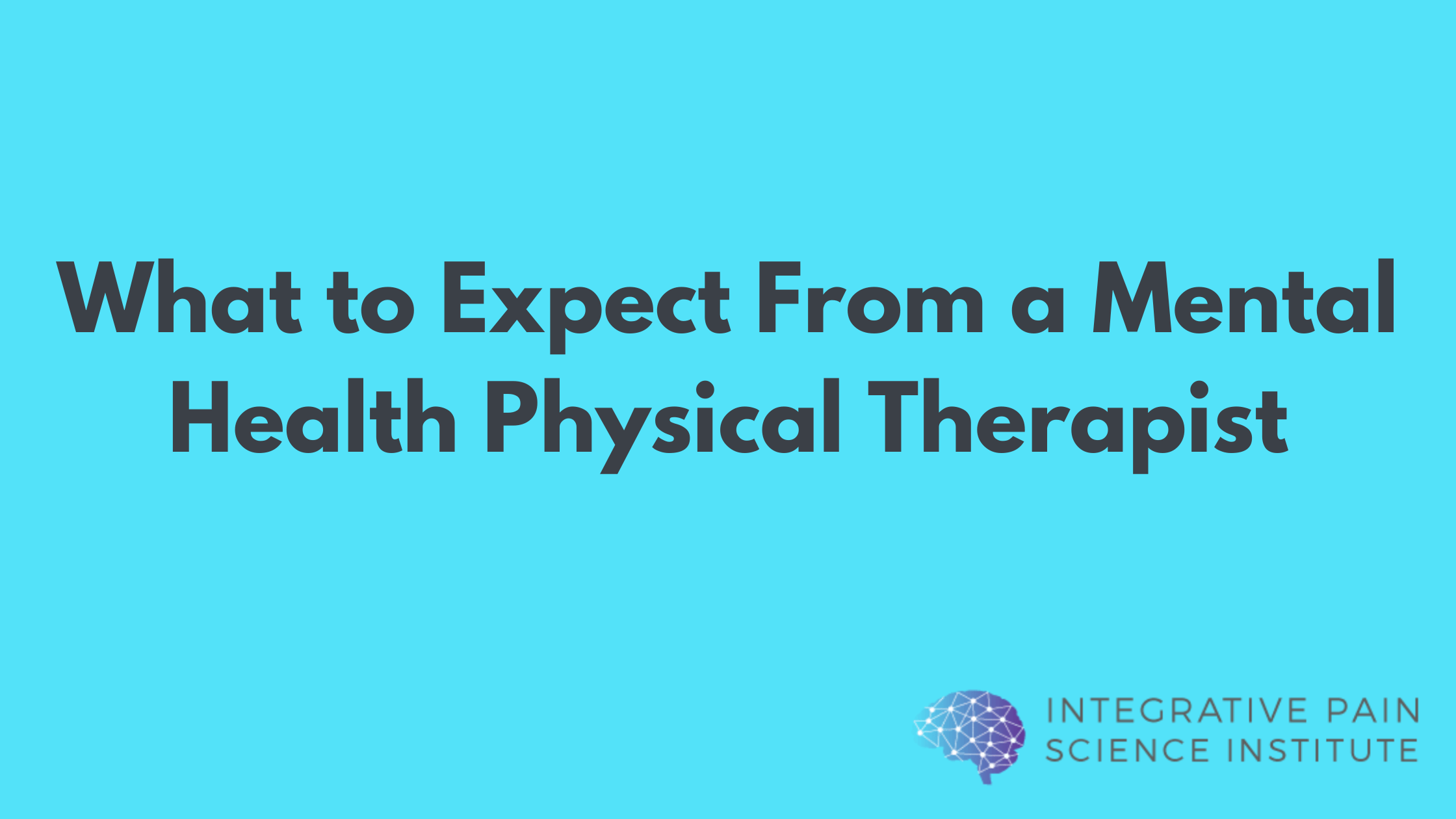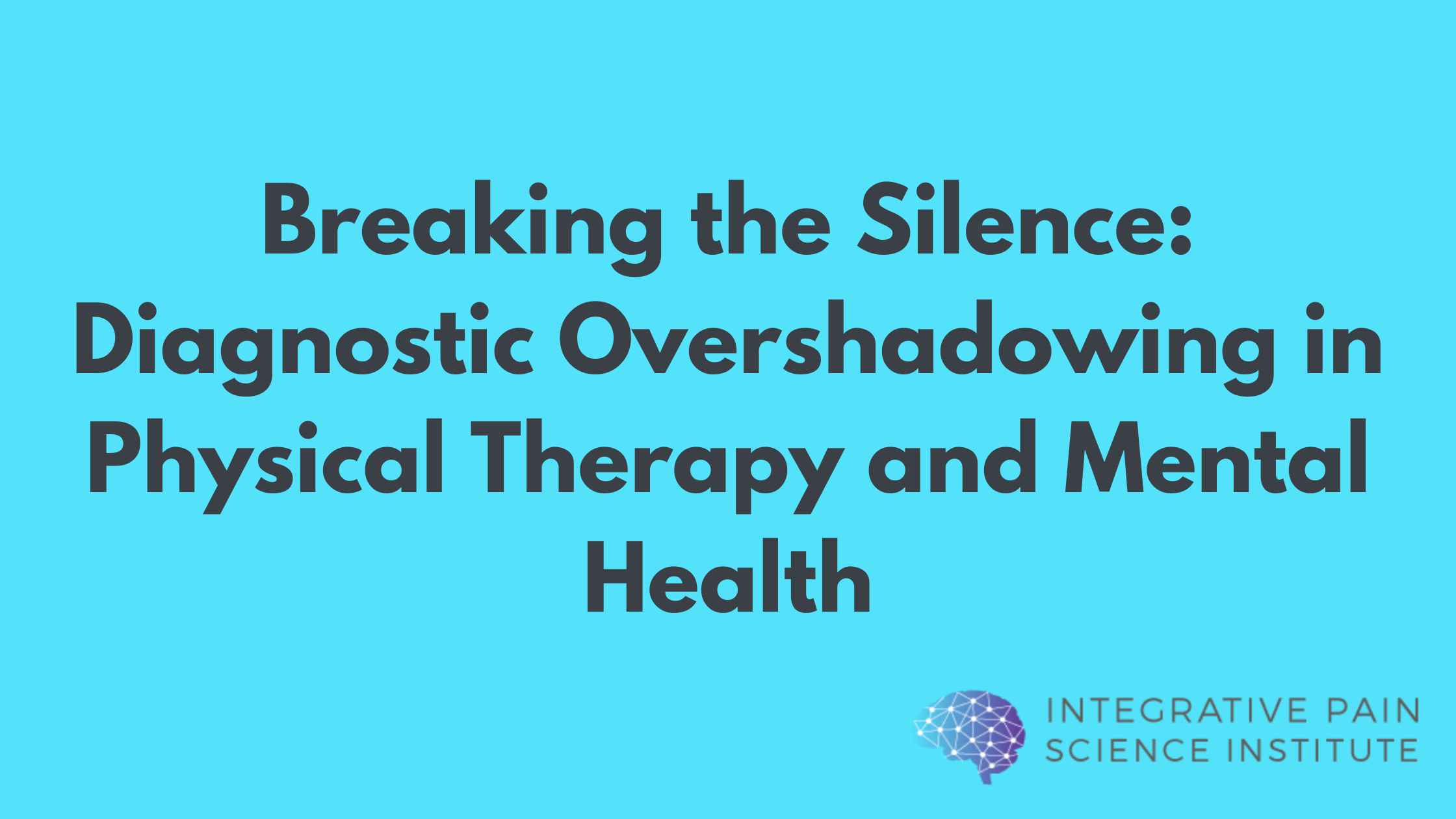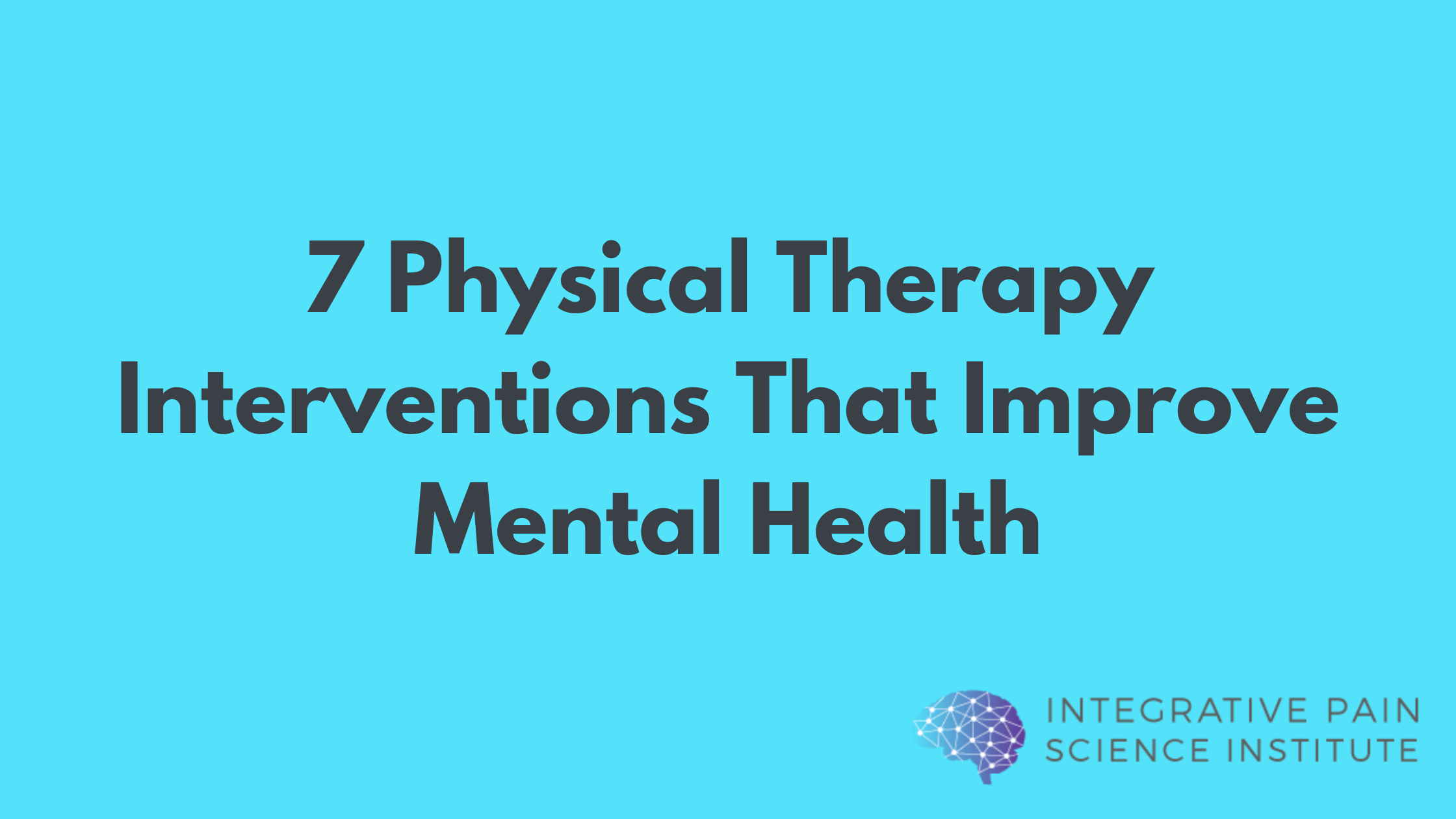Mental Health Trends and the Role Physical Therapists Play in Patient Care
By Joe Tatta, PT, DPT
As the conversation around mental health continues to evolve, physical therapists across all practice areas are recognizing the vital intersection between physical and psychological well-being. This growing awareness has given rise to a specialized area of practice called mental health physical therapy, also known as physical therapy and mental health or physiotherapy and mental health. With increasing demands for mental health services, the scope of practice for physical therapists has expanded, encouraging more professionals to enter this field.
For a comprehensive overview of the physical therapist’s role in mental health, refer to my earlier blog post, The Physical Therapist’s Role in Behavioral and Mental Health.
In this blog post, we’ll explore the current mental health trends impacting patient care, the role of physical therapists in this space, and the potential for professional growth in this emerging field. The discussion is divided into four main areas: mental health trends shaping physical therapy practice, the expanded scope of practice for physical therapists, the intersection of pain and mental health, and opportunities for growth through education and specialization.
Mental Health Trends Shaping Physical Therapy Practice
Mental health is no longer just the domain of psychologists, psychiatrists, and counselors. Increasingly, physical therapists are recognizing the psychology in physical therapy, with patients experiencing psychological and emotional challenges that manifest in the body. Conditions such as depression, anxiety, trauma, and toxic stress are well-known to contribute to physical complaints, particularly chronic pain. As more research emerges linking physical and mental health, the need for mental health physical therapy is rising.
This trend can be attributed to several factors, including the recognition that mental health disorders affect up to one-third of people with chronic pain, as well as patients with musculoskeletal issues, stroke recovery, and other neurological conditions. The rise in mental health awareness is prompting physical therapists to consider psychological factors like stress, fear-avoidance, and catastrophizing when developing treatment plans for their patients. Understanding the psychology and physical therapy relationship is critical to comprehensive patient care.
The evolving trend also includes a deeper understanding of how mental health influences physical rehabilitation outcomes. For instance, patients with high levels of anxiety or depression are more likely to experience slower recovery times, poorer adherence to rehabilitation programs, and an increased likelihood of experiencing kinesiophobia (fear of movement), which can further complicate recovery. This knowledge opens doors for physical therapists to contribute meaningfully to improving mental health through guided movement, relaxation, and mindfulness techniques.
Expanded Scope of Practice for Physical Therapists
One of the most exciting trends for PTs is the expanded scope of practice for physical therapists when it comes to integrating mental health care. In many states and countries, physical therapists can now address mental health-related issues as part of their patient treatment plans. This change aligns with the growing understanding that mental and physical health are deeply intertwined.
However, expanding the scope of practice comes with challenges. One frequent question is: Can physical therapists diagnose mental health conditions? While physical therapists may not typically diagnose mental health disorders, as primary care and entry point providers, they play a pivotal role in recognizing signs and symptoms of mental health conditions and making appropriate referrals to licensed mental health professionals. We can, however, make a differential diagnosis for physical therapists to rule out potential physical causes for symptoms that may have a psychological origin, allowing for more effective, holistic treatment plans.
The code of ethics for physical therapists is another critical consideration in mental health practice. Physical therapists must adhere to ethical guidelines when addressing mental health concerns, ensuring they operate within their professional boundaries while supporting the mental and emotional well-being of their patients. Building trusting relationships with patients and being attuned to the impact of psychological distress is essential, but so is collaborating with psychologists or psychiatrists when a more formal diagnosis or intervention is required.
For physical therapists eager to enter this space, understanding the role of a physical therapist in mental health care is essential. The integration of mental health into physical therapy often involves patient education on the mind-body connection, cognitive-behavioral strategies to overcome pain-related fears, and interventions that reduce anxiety, stress, and depression through movement and mindfulness.
The Intersection of Pain and Mental Health
One of the most prominent intersections between physical therapy and mental health is the link between pain and mental health. Pain is a multifaceted experience that is influenced not only by physical injury or dysfunction but also by a patient’s emotional and psychological state. This is where weaving in pain psychology approaches becomes an essential component of physical therapy care.
Chronic pain, in particular, is associated with higher rates of mental health disorders such as depression, anxiety, and post-traumatic stress disorder (PTSD). The mind and body are so interconnected that treating pain often requires addressing psychological elements. Physical therapists specializing in pain management are uniquely positioned to support patients’ mental health through a biopsychosocial approach. This model considers biological, psychological, and social factors, moving beyond a purely biomechanical view of pain.
Mental health interventions in physical therapy may involve helping patients reframe negative thoughts about their pain, practicing graded exposure to movement to reduce fear, and incorporating mindfulness or relaxation techniques to promote emotional regulation. By addressing both the physical and psychological aspects of pain, physical therapists can improve outcomes for patients suffering from conditions such as chronic low back pain, fibromyalgia, or complex regional pain syndrome.
The challenges of being a physical therapist in this space often involve the need for additional training and education to effectively address mental health concerns. As physical therapists expand their roles, the need for formal physical therapist online courses in mental health grows, providing practitioners with the tools they need to succeed in this field.



